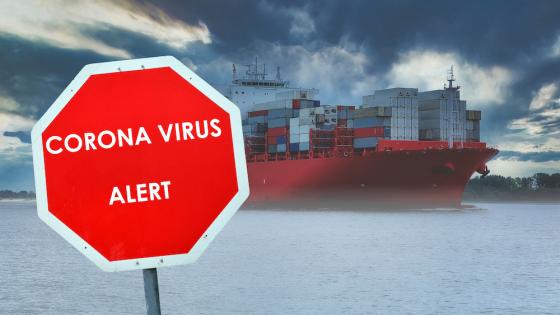COVID-19 has stressed every dimension of our societies and economies and over-turned many of the mores of policymaking (e.g. Baldwin and Weder di Mauro 2020). One area of stress has been world trading system, which has had to cope with collapsing demand and supply and severe disruptions to international logistics. It has also faced policy disruptions as nations have scrambled to find necessary medical supplies – equipment, drugs and personal protective equipment. While some countries have eliminated their long-standing restrictions on imports, others have restricted their exports.
Several commentators have shown how destructive the latter behaviour is, threatening to undermine the vary basis of trade and the efficiencies that result from specialisation (Baldwin and Evenett 2020). Analyses of the $597 billion trade in medical products and medicines linked to the COVID-19 pandemic revealed the consequences of export curbs or made the case for liberalising imports, but have not tied these two policy interventions together.
Why export bans and import liberalisations are tied
However, they are intimately linked and provide the basis for a new kind of reciprocity in trade deals. Why? Importers will see little benefit in liberalising their imports in medical products if, when it really matters, exporters can just cut off supplies. Hence, we suggest that in return for importing governments agreeing to keep their import restrictions at their current low levels, exporting governments agree to qualify the extent to which they can restrict shipments abroad. We have developed a straightforward, WTO-consistent, time-limited proposal that countries can publicly commit to at any time (Evenett and Winters 2020).
We have developed a straightforward, WTO-consistent, time-limited proposal that countries can publicly commit to at any time. … we suggest that in return for importing governments agreeing to keep their import restrictions at their current low levels, exporting governments agree to qualify the extent to which they can restrict shipments abroad.
Our proposal sets out a new basis for reciprocity in essential goods, of which the medical products associated with COVID-19 are examples. It recognises the international concentration in the production of these goods before the pandemic and the international value chains necessary for producing many of them – hence most nations rely on international trade to meet their needs. International specialisation is valuable in allowing producers to exploit economies of scale and take advantage of local efficiencies, both of which lower costs. Rejecting specialisation has significant opportunity costs. Calls for “greater self-reliance”, “strategic autonomy”, and “repatriated supply chains” would threaten the commercial viability of existing supply routes without guaranteeing enough medical kit for the next wave of COVID-19 or the next pandemic.
For nations reliant on foreign deliveries of these goods, our proposal provides greater reassurance that supplies will be forthcoming when they are needed – thereby diminishing the case for devoting scarce resources to an import substitution drive on medical goods. For nations wishing to sell in many markets, the proposal gives them more assured access and hence a stronger basis on which invest and innovate.
What’s new about this proposal?
Our approach departs from existing initiatives and proposals in significant ways. For example, the signatories of the Uruguay Round plurilateral agreement on Trade in Pharmaceutical Products1 agreed to eliminate import tariffs and customs duties on a specified range of pharmaceutical products. But they were all manufacturers and exporters of these products; not a single nation that relied extensively on imported pharmaceuticals signed up. And the last few weeks show why: the resort to curbs on exports at the very time that importers need these products most.
At its core, the risk of export bans upsets the traditional tariff-based logic for reciprocity. Net importers will discount the gains from tariff cuts by the extent to which such risk threatens supplies at critical times.2 In turn, net exporters will find commercial sales abroad are impeded by their reluctance to qualify their resort to export bans.
To their credit, the recent initiative of New Zealand and Singapore refers to both import tariff elimination and commitments not to “apply export prohibitions or restrictions, within the meaning of Article XI:1 of the GATT 1994”, at least in a defined list of essential goods.3 Eschewing such export curbs outright eliminates the uncertainty created by their use and thus is clearly desirable.
However, completely giving up the right to use such curbs is likely unacceptable to some WTO members. Hence our approach reflects an assessment that the reduced risk to disruptions in supply that will be valued by importing nations can be obtained by less restrictive disciplines on export curbs. We propose that governments commit themselves for only five years in the first instance and that export restrictions be:
- proportionate to the situation they seek to solve,
- explicitly justified and notified to partners,
- time-limited, and
- not reduce the flow of exports to any partner in any month by more than 50% of the ‘customary value’ (the average of the last two years, say).4
A new quid pro quo
In a nutshell, in return for assurances that their supplies of medicines and medical products will not be cut off completely and arbitrarily, importing governments would keep their import tariffs at their current low levels. For their part, governments of exporters of medical products would accept qualified rights to introduce temporary export curbs on shipments abroad. Each party would give up some discretion in return for greater security of supply of medical products or greater market access. The opportunity here is to significantly reduce the uncertainty facing buyers and sellers of vital medical supplies should subsequent waves of COVID-19 infection occur.
The advantages of the deal we propose are that:
- Its logic can be easily explained.
- It has particular resonance at this time, given the liberalising steps dozens of governments have already taken and the urgent need for cross-border medical supplies now and during a second wave of infection.
- Countries can make the declaration when they wish. Exporting nations are at different stages in the first wave of infection by COVID-19. An exporting nation’s interests shift markedly once the number of new cases of COVID-19 starts falling towards levels that make the restoration of something approaching normal economic conditions possible. Around that time, this quid pro quo has greater appeal.
- Proper risk management by buyers of medical products and medicines would include discounting offers from suppliers located in nations that free ride on this understanding. Exporters based in signatories could draw attention to their reduced risk of disruptions to supply through marketing initiatives, including their own labels.
- The bargain significantly reduces the uncertainty faced by both manufacturers of medical supplies and medicines and by buyers, both public and private. Reduced uncertainty encourages investment and greater supply of vital medical supplies.
- The set of goods covered is such that many countries are both importers and exporters of some of its elements. Their ability to cope with a second COVID-19 wave is enhanced by other countries’ commitments to eschew export bans, even if their foregoing their own right to ban exports completely somewhat reduces the domestic supply of other elements.
- Governments with little patience for dragged out global trade talks can move ahead without precluding the opportunity of other states to join later.
- Governments with a nationalistic bent cannot reasonably object to this initiative, not least because it respects the most-favoured nation (MFN) principle.
- By qualifying resort to export bans, the bargain encourages governments to focus on alternative ways to narrow the gap between the demand and supply for medical goods, including those options involving cooperation with other governments.
- Signing up for five years rather than in perpetuity makes it easier for governments to agree.
- Once calmer times return, this understanding could form the basis of a subsequent legally binding WTO agreement on trade in medical products and medicines.
Closing remarks
Given the sensitive nature of the products involved, a zero-for-zero tariff deal will not be sufficient. Importers are much less likely to put their trust in overseas sourcing of life-preserving goods if there is a significant risk of disruption created by export restrictions. A new deal – a new basis for reciprocity – is required.
There is clearly little appetite for an elaborate negotiated solution at the global level, at least in the near term, so a sensible starting point is to build on what governments have already done. Our proposal obviously does not fix every problem arising from the current shortages in medical supplies resulting from the COVID-19 pandemic.5 Our goal, instead, is more modest. This opportunity should be seized before governments that have temporarily liberalised their import regimes to medical products get frustrated with the paucity of available supplies and reverse their reforms. The appeal of this bargain will rise as more net exporters of medical kit and medicines put the worst of the first wave of the COVID-19 pandemic behind them.
References
Baldwin, R and S Evenett (2020) COVID-19 and Trade Policy: Why Turning Inward Won’t Work, VOX-EU e-book, CEPR Press.
Baldwin, R and B Weder di Mauro (2020) Mitigating the COVID Economic Crisis: Act Fast and Do Whatever It Takes, VOX-EU e-book, CEPR Press.
Evenett, S and L A Winters (2020), "Preparing for a second wave of COVID-19: A trade bargain to secure supplies of medical goods", UKTPO Briefing Paper No. 40,
Endnotes
1 See document L/7430 dated 25 March 1994.
2 To be clear, following well-established economic logic, we argue that nations gain when they reduce barriers to imported goods. Those gains include buyers paying lower prices, access to a greater variety of products, including higher quality goods.
3 See WTO document G/C/W/777.
4 See Evenett and Winters (2020) for more and more precise details.
5 While implementation of our proposal may stimulate production of medical supplies and medicines, it is not meant to be a substitute for a package of internationally agreed steps to expand production capacity, to maintain some production redundancy (allowing output to be ramped up when necessary), to build and maintain stockpiles, and to ensuring necessary medical expertise to operate complex medical equipment. Nor does this proposal seek to address the legitimate needs of developing countries as they face fiscal difficulties during a pandemic. Nor does it address the important intellectual property right questions that will arise once a vaccine is successfully developed. It is unrealistic to expect trade policy initiatives to solve every problem caused by the COVID-19 pandemic.



